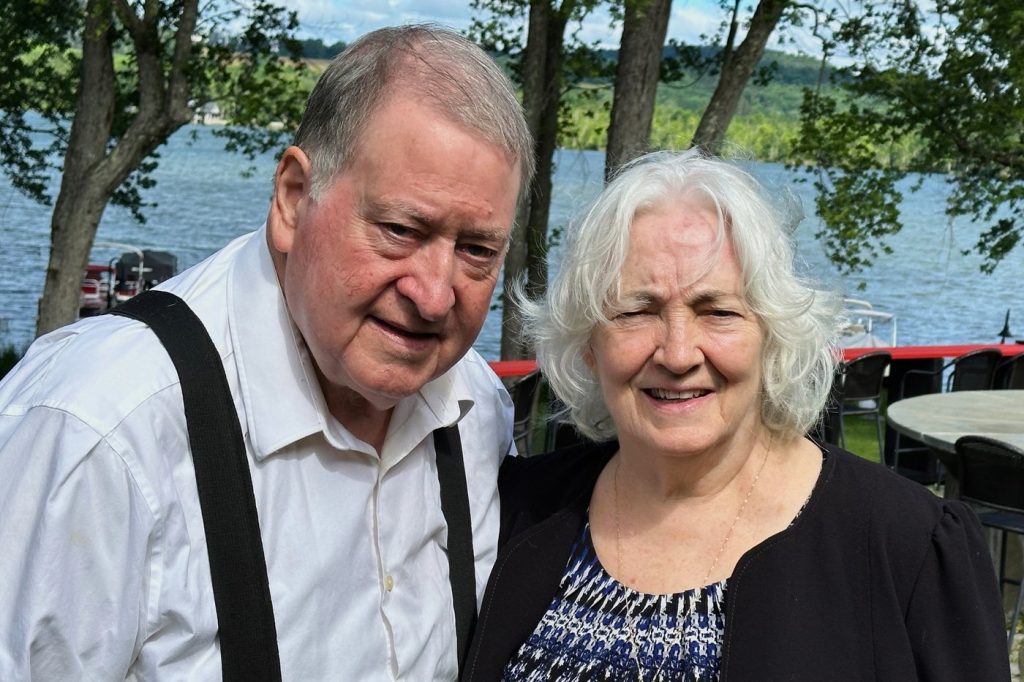HAMILTON, N.Y. (AP) — For over thirty years, Miles "Burt" Marshall was a trusted local figure in upstate New York, primarily known for tax preparation, insurance, and investment services. Operating from a quaint office in Hamilton, near Colgate University, Marshall became synonymous with a local investment option called the "8% Fund," which promised a guaranteed annual return of 8%, regardless of market conditions.
Marshall's reputation was built on friendly service and community engagement. He distributed gift bags containing local products, like maple syrup and pickles, with catchy labels that appealed to his small-town clientele. Many of his clients, including local businesses and organizations, invested their money with him, believing that they made a wise choice based on his reputation and assurances.
However, in a devastating turn of events, Marshall's investment scheme unraveled, resulting in a bankruptcy filing that revealed his debts to approximately 1,000 individuals and organizations totaled around $95 million. By summer 2023, Marshall, now 73 years old, was indicted for operating a Ponzi scheme. If convicted, he faces substantial prison time.
The fallout from Marshall's collapse has had a profound impact on the close-knit community of Hamilton, which has a population of roughly 6,400. Many of his investors were teachers, laborers, retirees, and small business owners, some of whom lost their life savings. Christine Corrigan, a local restaurant owner, reported that she was owed about $1.5 million, leaving her and her husband in disbelief at the breach of trust from someone they considered reliable.
Marshall and his wife resided in a Victorian home nearby, and his family had a long-standing history in the insurance and real estate business that bolstered his local credibility. Despite dropping out of college, he successfully positioned himself as a knowledgeable tax professional. His office, characterized by its elegant decor and organized atmosphere, reflected an image of success and reliability.
Beginning in the 1980s, Marshall solicited money from local residents to fund real estate investments, issuing promissory notes in return. For years, investors seemed to receive regular interest payments and maintained the ability to withdraw funds with minimal notice. However, as more people invested, Marshall's financial practices became unsustainable. By 2011, it was alleged that he was using new funds from investors to pay off earlier ones—a classic sign of a Ponzi scheme.
The issues escalated when Marshall faced severe health problems in early 2023, which led to significant medical expenses and increased withdrawal requests from investors. He filed for Chapter 11 bankruptcy, revealing liabilities exceeding $90 million against $21.5 million in assets, most of which were tied up in real estate. His financial troubles came to light, highlighting mismanagement and the diversion of funds into personal expenses and other unsuccessful businesses.
As legal proceedings progressed, investors learned that they would likely only recover a small fraction of their investments—estimated at about 5.4 cents on the dollar—through bankruptcy asset sales. Meanwhile, Carolyn Call, a retiree in Epworth, Georgia, expressed disappointment and financial strain as she relied on her investments to supplement her limited Social Security income, a scenario that mirrored the struggles of many who trusted Marshall with their savings.
In a stark contrast to his earlier years of community engagement, the aftermath of Marshall's actions has left his clients grappling with lost financial security. Dennis Sullivan, another investor, articulated this betrayal by questioning whom to trust in the future, emphasizing the profound emotional and financial ramifications felt throughout the community.
Marshall has pleaded not guilty to charges of grand larceny and securities fraud, facing accusations of stealing over $50 million. As bankruptcy proceedings continue, the repercussions of his alleged Ponzi scheme are still unfolding, leaving many in Hamilton and beyond to pick up the pieces of their shattered financial hopes.











